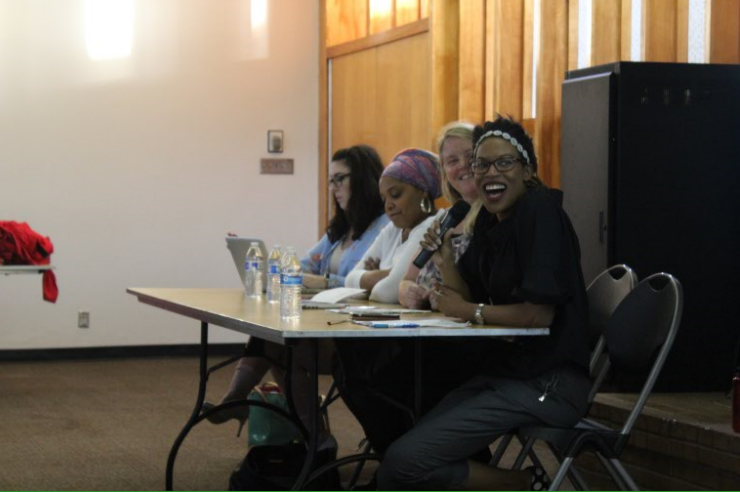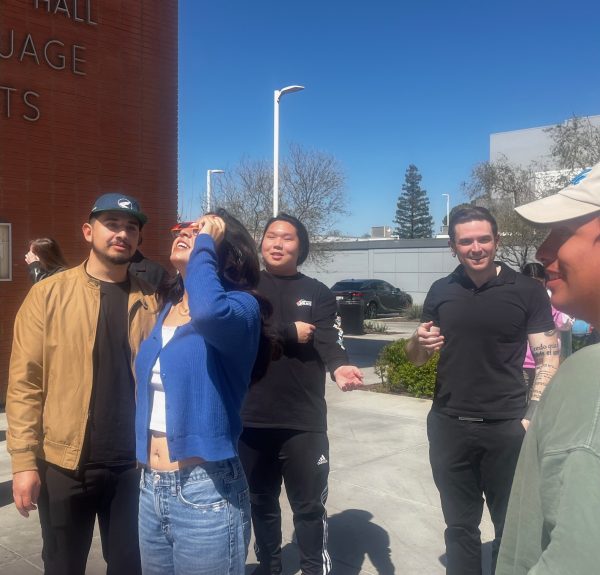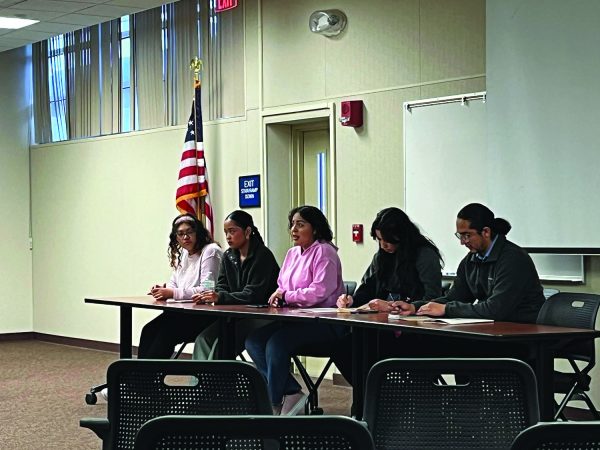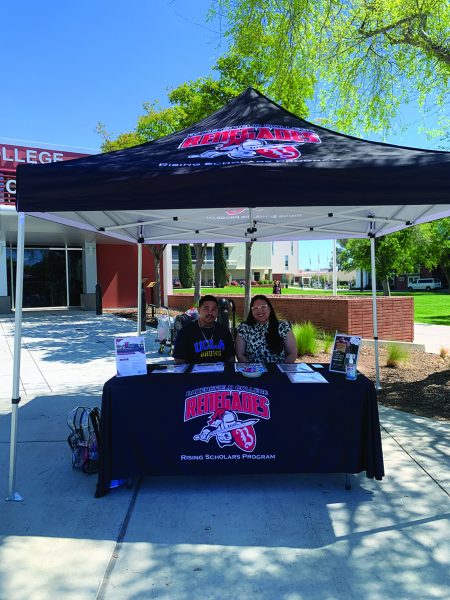Final WHAM event talks modern female identity
Jessica Grimes speaks about female identity and its limitations in availability in society.
April 20, 2017
The Women’s History Month and More (W.H.A.M) committee held its last and final event, “The Evolution of the Selfie: Deconstruction of the Female from 1400 to the Present,” on March 30. The event was composed of a panel and discussion of women who discussed the various ways women have identified themselves. The panelist were BC professors Erin Miller and Andrea Thorson, Taft College professor Jessica Grimes, and local executive director of First and Always Melanin Faheemah Salahud-Din. Grimes was the first one to speak on the topic by introducing the audience to multi-ethnic writers that first started to identify the self. She mentioned how the first images of women were created by men and women fell within those identities.
In most cultures and societies, women were not given power and that created the idea that men should have more power than women. “Why do we need to validate our power?” said Grimes. She went on to mention how females often need to prove why they need to have power.
“As a history professor, what I’m looking at are what are the origins, what are the roots of the identities available to women,” stated Miller. She introduced the idea of the diamond ring and what it means to a female. Miller explained that the idea began in Europe in the early 1900s and that women began to want a “big fat diamond because it showed that [females] are attractive and valued for a man who is successful and wealthy enough to be able to buy something expensive because it represents value.”
If then divorce occurred, the female would no longer have value because the diamond ring was now used to provide for the female after the divorce. Another point that Miller brought up was the idea that female purity is valued. She linked the idea back to early Europe where females only had two identities: “a housewife or a nasty wench.”
According to Miller, in England the law of primogeniture meant that the first born son inherited everything “to ensure that each family does not over populate the land available to them to feed, to survive.”
“Now what comes along with primogeniture is patriarchy, the absolute authority of men over women. This authority includes the right to use physical force to compel your wife or children to do whatever they want. You could beat her; you could rape her,” stated Miller.
A woman had no laws to protect her or even give her property. Miller then stated that the value and purity of a woman was valued because in primogeniture it was very important to ensure that a wife was bearing a man’s son and therefore a woman only had the choice to be a good wife or a nasty woman. Another point that Miller added was that when Europeans traveled to colonize, they often saw females as threats because they were not like the European women they had back home.
“If they are not like European women they dehumanize them and dehumanize the population they give birth to.” That was how many women were forced to identify only one out of two things; a good behaving house wife or a nasty wench.
Salahud-Din was the third person to speak. She has created and is the director of First and Always Melanin, a group of activists who organize community events to uplift the lives of black people in Bakersfield. Salahud-Din’s talk was centered on the different ways that a black female is seen. She mentioned how to this day she sees that a lot of women of color are seen as threats because of the identities that society has given them. Some of the identities she mentioned were those of “Mammy”, “Jezebel”, “Sapphire”, and the “Tragic Mulatto”.
Salahud-Din stated that one of the first ways black women were identified was like the character of Mammy, the older and bigger woman that “talked over men but did not have one.” Another identity was Jezebel, who was the promiscuous black female who also brought along the idea that justifies rape and that women ask for it. Sapphire is the character of the black angry woman who always screams and gets mad, and the Tragic Mulatto was given no racial identity.
Salahud-Din mentioned her concern for younger black girls and how they will react to all these stereotypes which is why she carefully monitors what her daughters watch on television. “Black women are not here for your consumption,” stated Salahud-Din. “We, ourselves, have to define ourselves, the art, the culture we want to see.”
She ended her talk with stating that it is important for women to tell their story and if they do not like the way they are represented to create that representation they wish to see because men should not be telling and writing the history of women. Thorson was the last to speak and started by introducing a powerful video of a young girl searching through children’s books at a library. The video had the young girl sorting out books that had a female lead character, who was adventurous and seen as a heroine. At the end of the little girl’s search, she was only left with around 10 books to choose from.
“About 17.5 percent of children’s books feature a lead female character,” said Thorson. She stated that children first consume their education through books. “Clearly there is a flaw with publishers in America,” she stated, “and little girls waiting forever for Prince Charming to come is not the first thing a girl should learn.”
Thorson mentioned the importance of providing young girls with the right tools of knowledge. She pointed out the flaws in films and books and the way they impact a young girl’s life.
“Society depicts what a girl is and that is what creates her aspirations in life.” She went on to mention how little girls always mention that they want to be a princess when they grow up and have the idea that they should live in some sort of fantasy. Thorson stated that there is a need to give girls the proper knowledge and teach them how to self-evaluate and seek diversity. The entire panel then answered questions from the audience as well as offered motivation and self-help tips.













